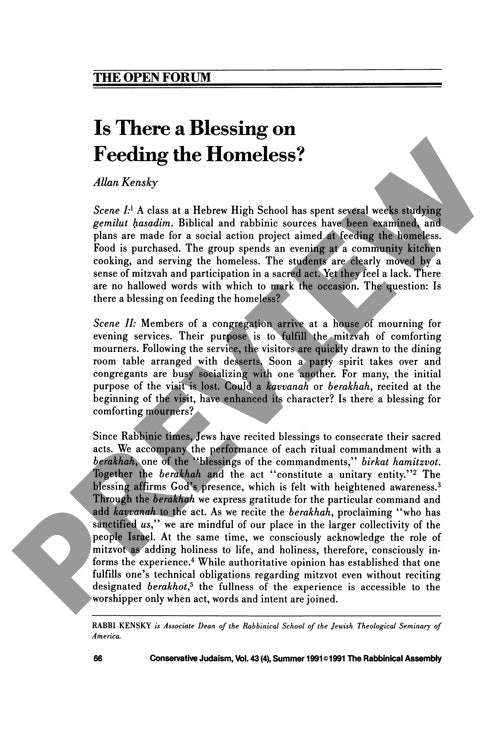Is There a Blessing on Feeding the Homel
Couldn't load pickup availability
Jewish tradition established blessings for ritual commandments but curiously omitted them for ethical acts like feeding the homeless or comforting mourners—a paradox that reveals deeper tensions between ritual and moral obligations in Judaism. Through analysis of classical rabbinic sources, medieval responsa, and halakhic literature, several explanations emerge for this liturgical gap, including medieval authorities' concerns about dependency on others' acceptance and the perceived inappropriateness of blessing corrective acts. The investigation pays particular attention to the groundbreaking practices of Rabbi Elijah ben Moses of London, who departed from convention by composing and reciting personal blessings for ethical acts. Examination of Talmudic sources and medieval rabbinic opinions suggests that introducing berakhot (liturgical blessings) for gemilut hasadim (acts of lovingkindness) could meaningfully enhance contemporary Jewish spiritual practice. Such innovations would bridge the sacred-secular divide, cultivate mindfulness during ethical acts, and reinforce the fundamental connection between ritual and ethical dimensions of Judaism. Specific blessing formulations are proposed for various ethical commandments, offering a path to strengthen both individual religious experience and communal religious identity in the modern era.

More Information
-
Physical Description
-
Publication Information
Published 1991
ISBN
-
Publication Credits
Allan Kensky

